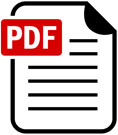Herbst, Sebastian
Künstlerisch-pädagogischer Musizierunterricht – Begriff, Kompetenzbereiche und Perspektiven eines künstlerisch-pädagogischen Instrumentalspiels
Lessons in artistic-pedagogical music making – Term, areas of competence and perspectives of an artistic-pedagogical instrumental play
Dieser Beitrag befasst sich mit dem Musizierunterricht in curricularen Teilbereichen der MusiklehrerInnenbildung, die auf den spezifischen Einsatz von Instrumenten durch Lehrende in pädagogischen Situationen des Musizierens mit Schülerinnen und Schülern in der Schule abzielen und vorbereiten. Zur Bezeichnung dieser nicht-solistischen und nicht-konzertanten Art des Musizierens im Klassenzimmer werden im deutschsprachigen Fachdiskurs eine Vielzahl von Begriffen verwendet. Dieser Diskurs erweist sich jedoch in vielerlei Hinsicht als verwirrend und unpräzise. Die begriffliche Unschärfe kann zudem als Ursache für Unklarheiten in Bezug auf die als notwendig erachteten Kompetenzen und die hochschuldidaktische Gestaltung des Unterrichts gesehen werden. Daher werden im ersten Teil dieses Artikels die Begriffsvielfalt diskutiert und der Vorschlag für den Begriff des künstlerisch-pädagogischen Instrumentalspiels erörtert und zur Diskussion gestellt. Daran schließt sich eine systematische Darstellung der in der einschlägigen Literatur als notwendig erachteten Kompetenzbereiche an. Im zweiten Teil des Artikels wird untersucht, inwieweit die entwickelten Kompetenzbereiche Bestandteil der musiklehrerbildenden Studiengänge sind. Zu diesem Zweck werden die Modulhandbücher und Prüfungsordnungen an den nordrhein-westfälischen Standorten der MusiklehrerInnenbildung mittels qualitativer Inhaltsanalyse untersucht. Auf der Grundlage dieser Ergebnisse werden abschließend didaktische Perspektiven und Forschungsperspektiven für den Unterricht im künstlerisch-pädagogischen Instrumentalspiel abgeleitet.
Abstract:
This paper focuses on instrumental teaching in curricular sub-areas of teacher education programs that aim for the specific use of instruments by teachers in pedagogical situations of music making with students at school. This non-soloistic and non-concert-oriented way of making music in classrooms is defined by a variety of terms from German speaking authors. This discourse, however, shows to be both confusing and imprecise in many ways. The conceptual imprecision can be seen as the cause of the ambiguities regarding the competencies deemed considered necessary as well as the higher education didactic design of those lessons. Therefore, in the first part of this article the variety of terms is discussed and the proposal for the term artistic-pedagogical music making is presented and put up for discussion. This is followed by a systematic presentation of the areas of competence considered necessary in the relevant literature. The second part of the thesis examines the extent to which the developed areas of competence are part of the music pedagogical study programs. For this purpose, the module manuals and examination regulations at the North Rhine-Westphalian locations of music teacher education are examined via qualitative content analysis. Based on these results, didactic perspectives and research perspectives for the field of lessons in artistic-pedagogical music making are derived in conclusion.

